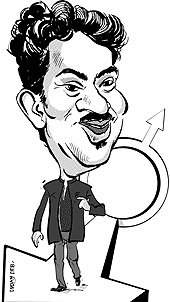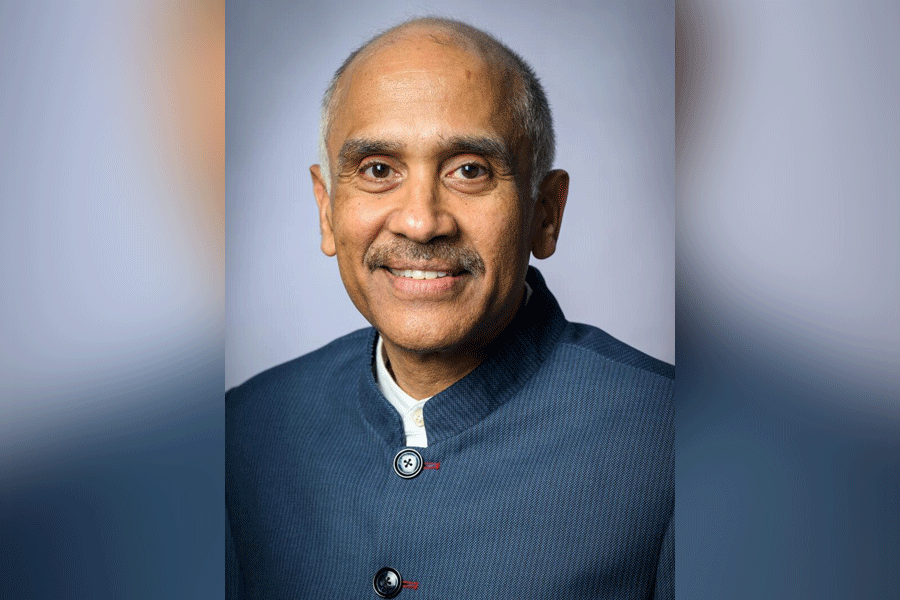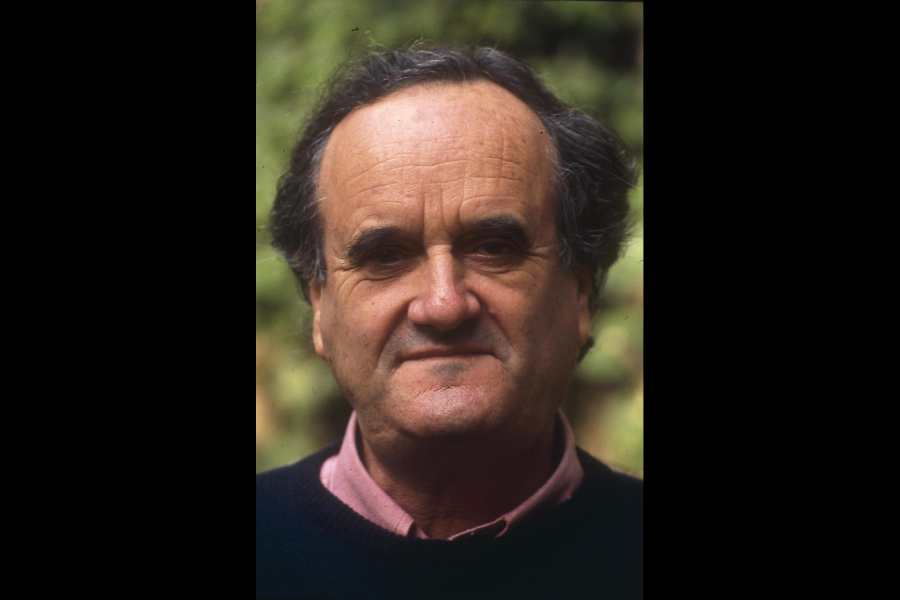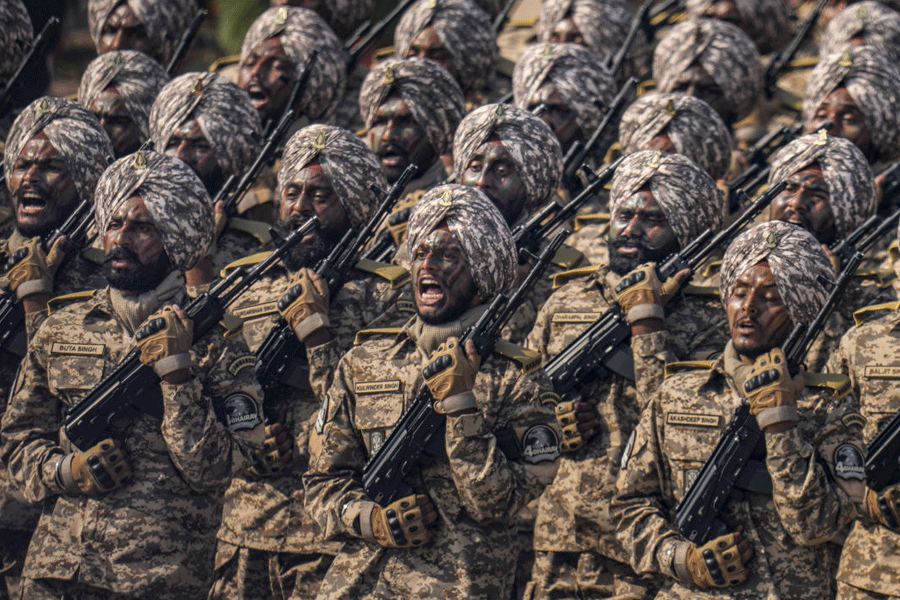 |
In a back lane of Goa’s leafy capital Panaji sits a mango and cream coloured Portuguese-style house, whose white walls are only rivalled by the sheer white fabric sewn into garments that have been strutted on ramps across the world.
In the salon of the house, graced by fine French wines and cookie-laden tables fashioned on Singer sewing machines, the couturier, Wendell Rodricks, sits easy atop a bar stool in trademark white.
After a whirlwind international fashion tour, he’s back where he belongs and loves most. While Bombay may be the city of his birth, Goa, where he moved in the early Nineties after training in Paris and Los Angeles, is, indeed, home.
But in recent times, even his beloved Goa , famed for its liberal outlook, has begun to sit in judgment on Wendell’s sexual orientation. He is gay and doesn’t care to hide it, or flaunt it. Rumblings of his sexual preference recently cropped up on Goanet, an e-network of Goans. It led to a furious debate, on and off the net, on the gay community.
This time, even Wendell — who otherwise couldn’t have been bothered to enter such a debate — felt compelled to respond. What he found particularly alarming, he says, was that it was for the fourth or fifth time that articles on the Net had clubbed homosexuality with prostitution and paedophilia. “Next you’ll say that all heterosexuals having oral sex are also perverted. We need to compartmentalise and define criminality versus love.”
For someone who’s been there — in a 24-year-long relationship with French partner Jerome Marrel — a gay relationship is about love, and not sex. But in the mind’s eye, at least that of the general public, Wendell realises sex seems curiously confined to homosexuals. “Sex is even attached to heterosexuality, but people don’t go around imagining what heterosexuals are doing in bed,” says the 47-year-old designer. And in linking the term homosexual with the sexual act, what gets forgotten, he rues, is the deeper emotion called love — “which is much stronger.”
But even though those in the cyber jury are Goans themselves, Wendell stresses that they do not typify the attitude of the Goan at large. “Goa is the most open place to be in. I think it is because Goans as a race have seen so many foreigners coming — the hippies of the 60s, the Portuguese before that and so on.”
Though even as he says this, he does not lose sight of the dichotomy that runs deep in the Goan villages that he’s come to know, fight for and love. The Goan designer believes that people in the state lead lonely lives. At the same time, there’s also a lot happening there — and these are stories that he sees himself writing about some day. “On the one hand they would say they know everything that’s happening in your house. They know my dog has fallen down, they know my mother’s in hospital; they share a concern and that’s a good thing.”
But on the other hand, these very villages can be hotbeds of fact and fiction, spun from the comfort of a cozy verandah. Some stories he hears are more salacious than others — of “a priest sleeping or having an affair with so and so.” He believes them to be true. “Nobody’s going to talk about or make fun of such an important topic. And it’s not impossible.”
In his rustic, ancestral village of Colvale, in north Goa, Wendell claims not to encounter homophobia — at least not in his face. In fact, when he and Jerome formalised their relationship by signing the Pacte Civile de Solidarite (PACS) in December 2002, recognised by French law as the solemnising of a relationship, same sex or otherwise, the local drunks asked the couple for a celebratory drink. “So we bought them a drink at the bar,” he says with a laugh.
What acts in his favour, he says, is his strong sense of caution and discretion, even bordering on the defensive — about not being the talking point for gossip-seeking villagers. “If you see me in my village — in church or at a public function, I don’t display overly my affection for my partner,” he says.
But if the villagers have been more discreet in disguising their homophobia, the swish settings have not always swung this as well. At the start of Wendell’s first socialite party in Goa, the hostess called him aside and warned him about two homophobic men there who, she feared, could insult him. “I said don’t worry. I’ll handle that.”
By the end of the party, the two men were smoking cigars and getting along “like a house on fire” with Wendell and Jerome. “They changed their views on homosexuality completely, in that one evening.”
The few times he’s encountered such situations, he’s also ended up becoming friends with the alleged gay-bashers. “I guess they expected me to be this terrible monster or someone very feminine who’d try to grab them,” he laughs.
But coming out — Shobhaa De wrote about his sexual leanings in 2002 — has also not been without its material benefits. For starters, the sales of his clothes tripled, says Wendell. And like with any gay man, “women became more comfortable with me, with their bodies.”
It also relieved him of carrying any mental baggage of this deep, dark secret. “I became more rounded as a person, more positive thinking, more balanced and assertive,” he says. And, Wendell claims, he became the first Indian fashion designer to openly say he was gay.
It’s a confidence that, perhaps, finds its roots in a sense of acceptance that he first found at home. He grew up in a middle class family — “more modern in its outlook than most other families.” His parents encouraged him to bring his friends over, which would have served as a clue to their son’s sexual orientation.
“My family always knew about my being gay, and accepted it.” People in his housing colony in Mumbai, where he grew up, or the catering college he went to, had no problems either. “I never flaunted it, but never hid it.”
When his mother first got to know about Wendell being gay, like most mothers she asked him if he was sure about the way he felt. “Parents want their children to be happy. And if they know they’re happy with a person, or a dog, they’re fine.” An animal lover, he has in his home three dogs and two cats.
From the first stirrings of romantic pangs for men, experienced in his late teens (his first sexual encounter was when he was 19) to a career switch from catering to some of the celebrated ramps of the world, Wendell Rodricks has, indeed, seen it all.
Wendell’s success in the world of haute couture is established — his clothes, mostly in sheer white, have been displayed in New York, Paris and in Germany. He and Jerome used to run a restaurant in Arpora village in North Goa called Aubergine, complete with a cigar bar. Jerome — whom Wendell reportedly first met when they were working in a hotel in Oman — likes his cigars; Wendell, his whites.
Next year, they celebrate 25 years of a partnership that may or may not set Goa aflutter. And to that, Wendell responds, “It’s my life, my mind and my love. I don’t need to explain it to anyone.”











